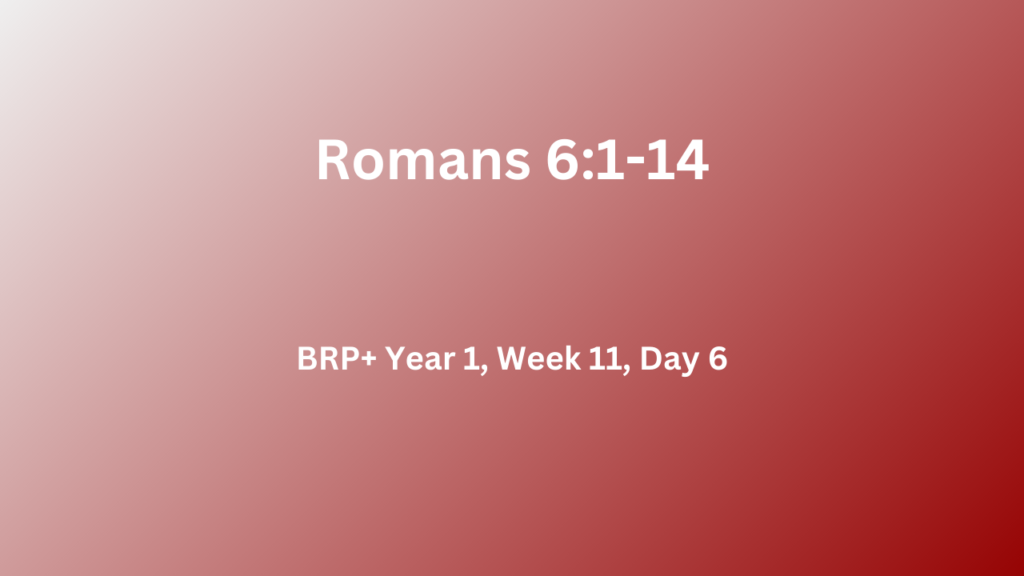Romans 6:1-14
Q.1. What question did Paul address first? How should the believer’s identification with Christ operate? What did Paul mean by his explanation? – (Rom.6:1-7)
Having expounded the breadth of God’s provision through Christ, Paul anticipated a common wrong response – Are we to continue in sin so that grace may increase? (Rom.6:1). Many Christians don’t understand the ongoing power of the cross, so therefore conclude that our transformation ends at conversion. However, Paul argued that this is a perversion of the gospel. God’s grace is extended – so that we would no longer be slaves to sin (Rom.6:6). Paul argued – How shall we who died to sin still live in it? (Rom.6:2). What did he mean? He explained this with the analogy of the water baptism of the believer. Here we identify symbolically with the death, burial, and resurrection of Christ, as He gave His life as the substitute for our sins on the cross (see Rom.6:3-4). In other words, since Jesus died for our sins, our identification with Him means that we have also died to sin. If this is not at the heart of our commitment to the Saviour, then we cannot share in His resurrection power over death either (see Rom.6:5). Just as a dead man is no longer responsive to his old nature and passions, neither are believers enslaved to their former passions and habits (see Rom.6:6). This is the basis of the new truth, and the reality by which we should live. Next, Paul explained how we are to put this truth into practice.
Q.2. Why is it important to KNOW what Christ has done? How do we APPLY this truth? To which Master should we YIELD? How often should we do this? – (Rom.6:8-14)
Paul shared several steps to help us live by this new reality: (i) As he has explained, we need to KNOW and understand what was involved in the atoning work of Christ on the cross – 9 knowing that Christ, having been raised from the dead, is never to die again; death no longer is master over Him. 10 For the death that He died, He died to sin once for all; but the life that He lives, He lives to God (Rom.6:9-10). (ii) We are to APPLY this truth by considering ourselves as dead, and therefore unresponsive to our sin nature and its desires and passions – 11 Even so consider yourselves to be dead to sin, but alive to God in Christ Jesus. 12 Therefore do not let sin reign in your mortal body so that you obey its lusts (Rom.6:11-12). Before I came to Christ, I was under the dominion of my sin nature. After coming to Christ, I received a new nature, so in every decision, I always have a choice. (iii) This means in effect that my slavery to sin is broken, and I am free to YIELD to my new Master, Jesus Christ. That is why Paul urged us – 13 do not go on presenting the members of your body to sin as instruments of unrighteousness; but present yourselves to God as those alive from the dead, and your members as instruments of righteousness to God. 14 For sin shall not be master over you, for you are not under law but under grace (Rom.6:13-14). Wouldn’t it be great if SANCTIFICATION was as instant as SALVATION? However, as often as I sin, I need to repent and re-submit myself to the initial presentation of my life to Christ on the day of my conversion. In the short term we can despair over our lack of progress. In the longer term, others begin to see our progress in Christlikeness.

